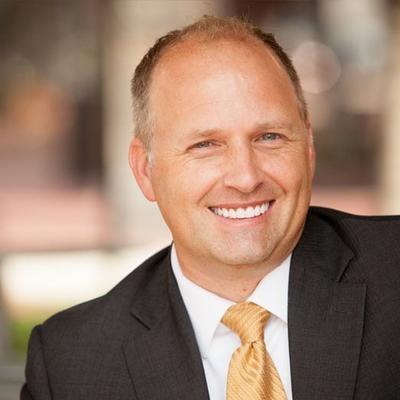Chicago Trademark Attorneys & Lawyers
How it Works

John Ray

Patrick Jones

Shanna Palmersheim

Octavia L. Powell
Dragan Ivetic

Kevin Keener

Martin Lefevour

Justin Lesko

Ryenne Shaw

Jade Carpenter
Chicago Trademark Lawyers
Legal Tips and Information
What Makes for a Valid Trademark?
In the startup world, trademark issues are rampant. Many teams struggle to develop unique marks for their business, products, and services – and may be somewhat lost with regard to the law surrounding trademarks.
When developing a mark that you intend to protect against potential infringement, it is crucial that you and your team understand what makes a trademark valid and enforceable under the law. Fortunately, the law (on the surface) is fairly uncomplicated: only distinctive trademarks are enforceable.
So, how do you know whether your mark is distinctive?
In the United States, there are certain core elements that – separately – function as the basis for a valid, distinctive trademark.
Arbitrary or Fanciful
If your mark is deemed arbitrary or fanciful, it will likely be considered to have inherent distinctiveness, and will therefore enjoy a high degree of trademark protection.
Fanciful marks have no meaning outside of the trademark context. They are created for exclusive purpose of defining and demarcating a unique product, service, or company. Google, Exxon, and Clorox are examples of fanciful marks with substantial brand recognition.
An arbitrary mark may have its own meaning outside of the trademark context, but this meaning is unrelated to the trademark. Apple (the company) is a famous example of an arbitrary mark. “Apple” refers to a type of fruit, of course, but the mark is used in a completely arbitrary manner to refer to the technology company and its products/services.
Suggestive
Suggestive marks are considered inherently distinctive and therefore entitled to a high degree of trademark protection, though not to the same degree as arbitrary and fanciful marks. A suggestive mark is one in which the name does not directly or obviously describe the character of specific products or services, but with some imagination, is evocative of such character. For example, the bus company name Greyhound is suggestive of speed, which is evocative of the character of the service provided, but this connection requires some imagination.
Descriptive
Descriptive marks are not ideal, but are quite common in the startup world. A descriptive mark – both in and out of context – to some degree describes, and does not merely suggest, the character of the relevant products or services. Descriptive marks are not considered inherently distinctive, and do not enjoy any trademark protection by default.
To entitle your descriptive mark to trademark protection, you must show that it acquired secondary meaning. A mark will be deemed to have acquired secondary meaning if the evidence demonstrates that the mark has come to be associated with a particular product, service, or company. For example, if you sell a product marked as “Jar of Beeswax,” you would have to show that the mark has come to be associated with your product specifically, and not with “beeswax jars” generally.
Generic
Generic marks are not entitled to any protection, and may not acquire secondary meaning. To put it bluntly: a generic mark can never be protectable. Generic marks typically refer to the categorical name of a product. For example, a pen company selling a ballpoint pen product called “Ballpoint Pen” would not be able to protect that mark, as it generically names the category of the product.
The Different Levels of Trademark Registration
Obtaining trademark protection is rather uncomplicated, though there are several options available with various advantages and disadvantages. As the options may confuse or overwhelm startups, let’s break them down into simpler, easier-to-digest parts.
Federal Trademark Registration
To register your mark federally, you’ll first have to show that your mark is being used and/or advertised across state lines (i.e., that it is not limited to one state) or is being used and/or advertised internationally. Then, you’ll have to register your mark with the US Patent and Trademark Office (USPTO).
Federal registration provides a number of important benefits: 1) it gives notice to potential trademark infringers about the existence of your mark; 2) it enables you to sue a defendant for infringement; 3) and federal registration grants you a presumption of validity and ownership as to the mark.
Illinois State Trademark Registration
If your mark is not being used, promoted, etc. across state lines or internationally, you may only be entitled to register it in the state where it is being exclusively used and promoted – here, the state of Illinois.
If you have a federal trademark registration, you do not need to register on a state-by-state basis.
With state registration in-hand, you are entitled to sue defendants who infringe upon your state trademark. You cannot sue those who infringe beyond state lines.
A skilled Chicago trademark attorney will ensure that you conduct an extensive trademark search to suss out conflicting trademarks in other state jurisdictions and in the federal register. If another party has an existing trademark, it may preempt your new Illinois-registered trademark.
Common Law Default Protection
You are not required to register a trademark to enjoy trademark protection, though it is good policy to do so. In the United States, you may be entitled to common law trademark protection if you are the first to use a given mark in the stream of commerce.
For example, suppose that you develop a product called “SleekTan,” which is a new tanning cream. You sell it over the years without ever having registered in Illinois or federally with the USPTO. If you were the first to ever use the name “SleekTan” in the stream of commerce, then you likely are entitled to common law trademark protection. You can sue infringers on the basis of this protection.
The problem with common law protection is that it is rarely applicable to geographic regions in which the mark is not established. Common law protection applies to those geographic regions where the mark has demonstrated brand recognition. If you use a mark locally, you may not be able to prevent a company across the country from using the same mark and building a significant reputation with it. If you intend to expand your business beyond your geographic foundations, then it is important to register your mark with the help of a trademark lawyer.
Trademark Infringement
Once you’ve entered the stream of commerce with your mark, you and your team may occasionally discover potential trademark infringement issues, both in your industry and outside of it. The possibility of trademark infringement can be quite frightening for a budding startup. Most startups invest a substantial amount of money, time, and energy into developing a cohesive, popular brand, and trademark infringement can stall company momentum.
For this reason, it is generally recommended that startups work with an experienced trademark attorney. Infringement concerns must be dealt with swiftly so as to minimize brand damage.
What Counts as Infringement?
A defendant will be found to have infringed on your trademark if it can be shown that consumers will be confused as to the source of the goods or services associated with the mark.
Whether a regular consumer would likely be confused is a matter for the courts to decide. They will weigh all the evidence and determine whether a consumer is likely to be confused between the marks at-issue. The factors include, but are not limited to: a) the level of protection granted to the mark itself (remember, arbitrary and fanciful are granted the highest level of protection, then suggestive, then descriptive, then generic); b) the similarity of the marks to each other, both in terms of content and aesthetic; c) evidence of consumer confusion; d) marketing overlap; and e) the defendant’s intent to infringe.
This can all be a bit overwhelming at first, so let’s clarify with an example.
Suppose that you develop a product called “SleekTan,” a tanning cream. Another company later develops a glossy wood epoxy called “Sleek Wood Tan,” meant for coating wood decks.
From the facts presented, it is likely that no infringement has occurred, despite the similarity of the marks. The mark “SleekTan” is suggestive, and is entitled to a high degree of protection, but the marks are still different in content. Further, consumers are unlikely to be confused since the products are used for entirely different purposes. The marketing channels used are also likely to be different, given the products’ function. Even if you were able to show that the defendant intended to infringe on your product, the court may find that no infringement actually occurred.
As trademark infringement is quite specific to the facts of the case, it is important that you work with an experienced, knowledgeable Chicago trademark lawyer. It is worth seeking the consultation of a lawyer prior to any infringement, as your lawyer will be able to advise you on the strength of your trademark protection and how to best preserve your mark (through registration, advertisement, etc.).
Why use UpCounsel to hire a Chicago Trademark Attorney?
Average experience
You always get experienced professionals and high caliber work.
Faster
Your work gets done quickly because professionals are always available.
More cost effective
We use technology to cut traditional overhead and save you thousands.
UpCounsel has been talked about in:
Legal Services Offered by Our On-Demand Chicago Trademark Attorneys
Our experienced Chicago trademark attorneys & lawyers represent individuals and businesses with everything they need to secure and protect their trademarks. Our attorneys can help individuals with everything from trademark clearance searches to determine whether the desired mark is available for adoption, use, and registration. By reviewing the search reports thoroughly, they can conclusively determine the extent to which a mark is already being used and the potential success of filing a trademark.
Trademark licensing can be complex, but our trademark attorneys have experience drafting agreements on behalf of both licensees and trademark owners - thus allowing you to capitalize on your valuable intellectual property. Our Chicago trademark attorneys can also draft and file your trademark with the United States Patent and Trademark Office (USPTO), including Intent to Use and Use in Commerce applications.
Our attorneys can also help protect your trademark around the globe by assisting clients with filing trademark applications under the Madrid Protocol, which allows trademark holders to obtain protection in multiple countries by filing a single application.
Improve Your Legal ROI with Affordable Trademark Attorneys that service Chicago, IL.
What Our Customers Have to Say
"UpCounsel gives me access to big-firm lawyers minus the big-firm price tag. I work with several attorneys on the platform and there are never surprises...I always receive quality legal work at competitive rates that larger firms simply cannot match."
"Every startup needs to know about UpCounsel. We found great attorneys at great prices and were able to focus our resources on improving our business instead of paying legal bills."
"Before UpCounsel it was hard for us to find the right lawyer with the right expertise for our business. UpCounsel solves those problems by being more affordable and helping us find the right lawyer in no time."
This is the most recent 20 reviews out of 59 reviews for Trademarks & Copyrights attorneys in Illinois

Conduct Trademark Search
"Great knowledge and explanation"
Sall H
.
Skokie,
IL,
almost 2 years ago

Trademark Registration chirrup
"Very helpful and responsive! Will continue working with him"
Grace H
.
Glenview,
IL,
over 2 years ago

U.S. Trademark App No 90256647: JOLT YOUR CAREER - Prosecution
"Thank you for quickly getting my trademark done."
Teegan B
.
Schaumburg,
IL,
over 3 years ago

Register Trademark
"Prompt, thorough, and professional. Great with communicating the progress of work being done."
Elena P
.
Saint Charles,
IL,
almost 4 years ago

Trademark Registration
"Great attorney - highly recommended!"
Minerva Valuation A
.
Chicago,
IL,
over 4 years ago

Review my response to Gowling WLG
"Once again Lauri has demonstrated her knowledge and humanity. I would highly recommend her to anyone! Absolutely amazing person!"
Giorgi G
.
Naperville,
IL,
about 5 years ago

Assist with Copyright Infringement
"Timely advice, follow through and excellent communication. Very reliable team that helped resolve the issue I had which I knew nothing about. Their counsel was invaluable. Highly recommended."
Amar R
.
Chicago,
IL,
about 5 years ago

Register Trademark
"EXCELLENT ATTORNEY"
Chatto W
.
Chicago,
IL,
about 6 years ago

Draft Response to USPTO Office Action (Trademark)
"Randy was very clear and upfront about the process of responding to a trademark action and made it easy for us."
Tyson M
.
Peoria,
IL,
over 6 years ago

Assist with Copyright Infringement
"Honest, prompt and quality work. Overall great experience!"
Greg B
.
Chicago,
IL,
over 6 years ago

Register Trademark
"Very professional, polite and knows how the trademark application works."
Al M
.
Schaumburg,
IL,
almost 7 years ago

Trademark Registration
"He's good. Communicative, effective."
Lou Y
.
La Grange Park,
IL,
almost 7 years ago

Register Trademark
"Carolina was great to work with! She was very clear on our intro call, and very prompt and responsive via messages as well throughout the process. Thank you!"
Zach R
.
Chicago,
IL,
almost 7 years ago

Consult on Trademark Infringement
"Fast response. Very clear and patient."
Chris H
.
Galena,
IL,
about 8 years ago

Assist with Copyright Infringement
"Good experience. Very clear expectations and knowledgeable"
Juan R
.
Barrington,
IL,
about 8 years ago
.jpg)
Trademark Registration Services
"Jackson was professional and very knowledgeable. He also communicates very well and follows up in a timely manner. I will definitely be using his services for future projects."
Athalia S
.
Bloomington,
IL,
about 8 years ago

Trademark Registration Services
"Great working with him. Highly recommended"
Isaac C
.
Des Plaines,
IL,
over 8 years ago

Standard US Trademark Package
"Very easy to work with on the trademark application. Clear, concise answers to questions as well. Recommended."
Avi S
.
Chicago,
IL,
over 8 years ago

Trademark Registration Services
"Very consistent, knowledgeable and helpful."
Tommie H
.
Northbrook,
IL,
over 8 years ago

Statement of Use
"We have used Alejandro a few times now and he has always been excellent. I would highly recommend him!"
Jason B
.
Chicago,
IL,
almost 9 years ago
Related Articles
Key Takeaways
- A trademark disclaimer clarifies that certain parts of a mark, usually descriptive or generic words, are not claimed as exclusive rights.
- A third party trademark disclaimer is especially important in advertising and marketing to avoid implying endorsement or affiliation with another company’s brand.
- Courts and the USPTO often require disclaimers to ensure consumer clarity and reduce the likelihood of confusion.
- Businesses should avoid overly generic, misleading, or unnecessary disclaimers, which can weaken brand protection.
- When using third-party trademarks in ads, disclaimers must be precise, visible, and truthful to minimize infringement risk.
...
Read MoreKey Takeaways
- A trademark blog name protects your brand identity and ensures no one else can legally use it for similar services.
- You must show use in commerce or intent to use to qualify for registration.
- Trademarking can build brand value, deter infringement, and allow you to monetize your blog more effectively.
- Not all blog names qualify—generic, descriptive, or misleading names are typically refused.
- The application process involves searching the USPTO database, choosing the right class, and filing through TEAS.
- Common mistakes include assuming copyright covers your blo
...
Read MoreKey Takeaways
- Trade dress infringement involves copying the look, feel, or packaging of a product or service in a way that confuses consumers.
- Courts apply the “ordinary buyer” standard and evaluate factors like distinctiveness, similarity, and actual confusion.
- To bring a claim, trade dress must be non-functional, distinctive, or have secondary meaning, and consumer confusion must be likely.
- Defenses include functionality, lack of distinctiveness, fair use, laches, and brand name prominence.
- Remedies may involve injunctions, monetary damages, or attorney fees, with dilution claims providing additional protection.
...
Read MoreKey Takeaways
- Definition & Importance of Trademark Licensing: Trademark licensing allows a trademark owner to grant rights to a third party to use their mark under agreed conditions, which can help expand brand presence while generating revenue.
- Types of Trademark Licenses: Includes exclusive, non-exclusive, and sole licenses, each providing different levels of rights and restrictions for the licensee.
...
Read More